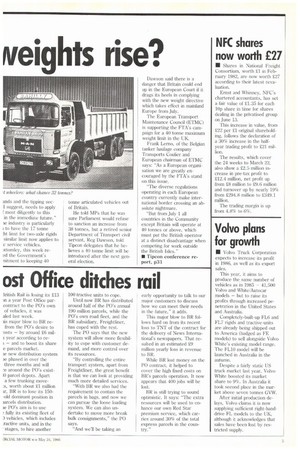ost Office ditches rail
Page 5

If you've noticed an error in this article please click here to report it so we can fix it.
3ritish Rail is losing its 513 m a year Post Office parcontract to the PO's own of vehicles, it was aled last week.
Us major blow to BR refrom the PO's desire to :osts — by around 26 milyear according to re; — and to boost its share e parcels market.
ie new distribution system )e phased in over the three months and will around the PO's exist() parcel depots. Apart a few trunking move:s, worth about 21 million tr, BR is to lose its 150-old dominant position in iarcels distribution.
le PO's aim is to use !. fully its existing fleet of ) vehicles, which includes :ractive units, and in the • stages, to hire another 100 tractive units to cope.
Until now 13R has distributed around half of the PO's annual 190 million parcels, while the PO's own road fleet, and the BR subsidiary, Freightliner, has coped with the rest.
The PO says that the new system will allow more flexibility to cope with customer demand, and more control over its resources.
"By controlling the entire transport system, apart from Freightliner, the great benefit is that we can look at providing much more detailed services.
"With BR we also had the requirement to contain the parcels in bags, and now we can pursue the loose loading system. We can also undertake to move more break bulk consignments," the PO says.
"And we'll be taking an early opportunity to talk to our major customers to discuss how we can meet their needs in the future," it adds.
This major blow to BR follows hard on from its recent loss to TNT of the contract for the delivery of News International's newspapers. That resulted in an estimated 29 million yearly loss in revenue to BR.
While BR lost money on the PO contract, it helped to cover the high fixed costs on BR's parcels operation. It now appears that 400 jobs will he lost.
BR is still trying to sound optimistic. It says: "The extra resources will be used to enhance our own Red Star premium service, which carries around 30% of the total express parcels in the country."














































































